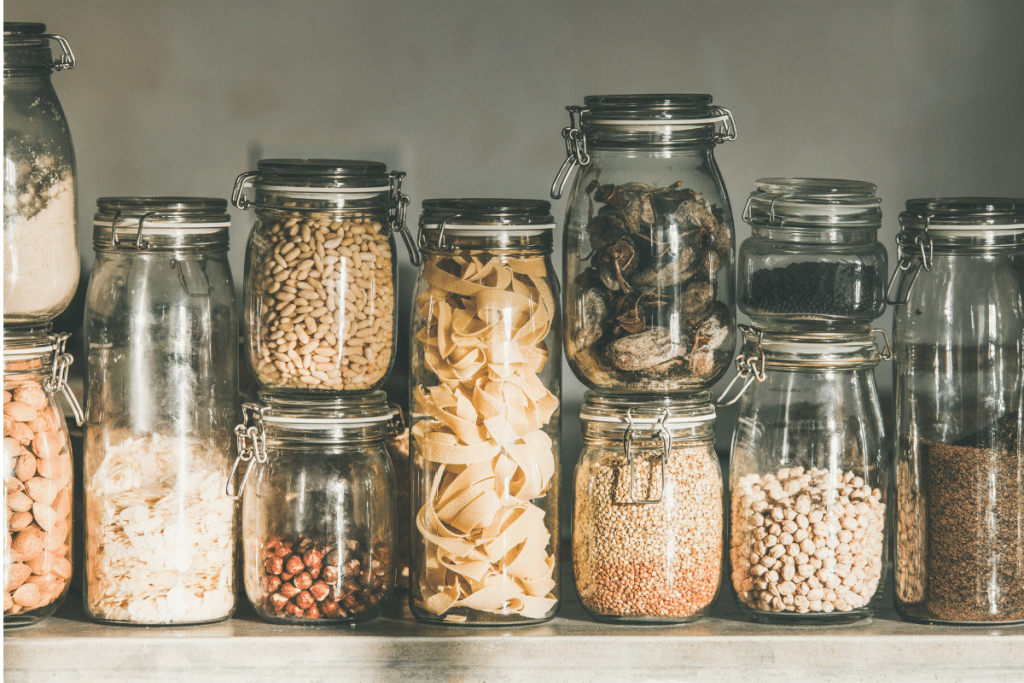
Let’s be honest – trying to live a healthy lifestyle can get expensive fast. But it doesn’t have to be. Wellness isn’t just about buying fancy supplements or joining pricey gyms. It’s often about simple changes that make a difference over time.
You don’t have to go all in at once. Making small, affordable swaps can improve how you feel and help you spend less. These are realistic steps anyone can take, whether you’re just starting your wellness journey or looking to cut back on spending. Here are seven smart ways to get started.
1. Swap Harsh Cleaners for Non-Toxic, Concentrated Alternatives
Most household cleaning products you see at the store are filled with harsh chemicals. They’re not only tough on your skin and lungs, but they can also be surprisingly expensive. Many of them are made up mostly of water, which means you’re often paying more for the packaging than the product itself.
This is where concentrated, plant-based cleaners make a lot of sense. They allow you to mix your own solutions at home, which saves money and reduces waste. These products also tend to be safer for kids, pets, and anyone with sensitivities.
One company that offers concentrated and eco-friendly options is Melaleuca – The Wellness Company. They’ve built a reputation for developing household products that are both safer and longer-lasting.
Melaleuca was founded in 1985 by Frank VanderSloot, who grew up on a small Idaho farm. He took the values he learned early—like hard work and sustainability—and used them to build his company. He also runs Riverbend Ranch, one of the country’s most respected cattle operations. The ranch focuses on quality and ethical practices, and you can see that same mindset in how Melaleuca designs its products: reliable, responsible, and practical. These kinds of companies remind us that doing things the right way often saves money in the long run.
2. Trade Sugary Drinks for Infused Water or Herbal Tea
Drinks like soda and bottled juices may seem like small purchases, but the costs build up over time. Not to mention the sugar content, which can leave you feeling sluggish and craving more.
A better choice? Infused water. It’s easy to make at home and tastes great. Drop in some lemon, mint, or berries and let the flavors blend. If you want something warm, try herbal teas. They’re affordable, easy to find in bulk, and offer benefits like better digestion, calmness, or energy, depending on the blend.
By making your drinks at home, you save money and avoid all the added sugar, preservatives, and packaging.
3. Replace Packaged Snacks with Whole Food Staples

Packaged snacks are convenient, sure—but they’re often overpriced and full of ingredients you don’t need. Most don’t keep you full for long either.
A smarter option is to stock your kitchen with whole food staples. Boil some eggs ahead of time, slice apples to pair with peanut butter, or make a simple trail mix with nuts, seeds, and dried fruit. These snacks are more filling and give you steady energy throughout the day.
Prepping snacks in advance takes just a little effort, and it helps you avoid the expensive vending machine or impulse purchases at the gas station.
4. Swap Your Gym Membership for Free or Low-Cost Movement
Gym memberships sound like a great investment—until you realize how often you’re not using them. If you’re not going regularly, it’s probably time to rethink it.
Movement doesn’t have to cost a thing. Walking, stretching, and bodyweight exercises can be done at home or outside. YouTube has endless free workout videos, from yoga and Pilates to strength training and cardio. There are even free fitness apps and local meetup groups that host weekly walks or workouts in the park.
Exercise should feel accessible. When it fits your routine, you’re more likely to stick with it—and that’s where the real value lies.
5. Choose Reusable Over Disposable
It’s easy to overlook how often we buy and toss disposable items—paper towels, plastic bags, bottled water, and more. These small purchases add up fast.
Swapping disposables for reusables is an easy way to cut costs and reduce waste. Try cloth towels instead of paper ones, stainless steel or glass water bottles, reusable grocery bags, or washable food containers. These items usually pay for themselves in just a few weeks.
Not only do you save money, but you’ll also create less clutter and feel better about your environmental impact.
6. Buy in Bulk Where It Makes Sense
Buying in bulk works best for things you use regularly. Dry goods like oats, rice, beans, pasta, nuts, and spices can be cheaper per ounce when bought in larger quantities. The same goes for cleaning supplies or toiletries.
Of course, bulk shopping only works if you use what you buy. Avoid buying perishables in large quantities unless you have a plan to freeze or preserve them.
Pair bulk buying with a simple meal plan. That way, nothing goes to waste, and your grocery trips become more efficient. You’ll also be less tempted to grab expensive convenience foods.
7. Prioritize Sleep Over Expensive Wellness Fads
We’re constantly told to buy things to feel better—vitamins, detox kits, sleep trackers, and the latest wellness gadgets. But often, the most effective wellness habit is also the simplest and cheapest: sleep.
Quality sleep helps balance your mood, improve focus, strengthen your immune system, and even support weight management. And it doesn’t cost a cent.
You can improve your sleep by building a consistent nighttime routine. Go to bed at the same time, put your phone away an hour before sleeping, dim the lights, and keep your room cool and quiet. These little changes make a big difference in how you feel during the day.
You don’t have to spend a lot to take care of yourself. These swaps are simple, low-cost, and practical. They don’t require big changes or fancy products—just a willingness to try something new.
When you focus on habits that save money and support your health, you create a lifestyle that actually works. Start small, stay consistent, and give yourself credit for making smart choices. Over time, you’ll feel better, spend less, and have more energy for the things that matter.
